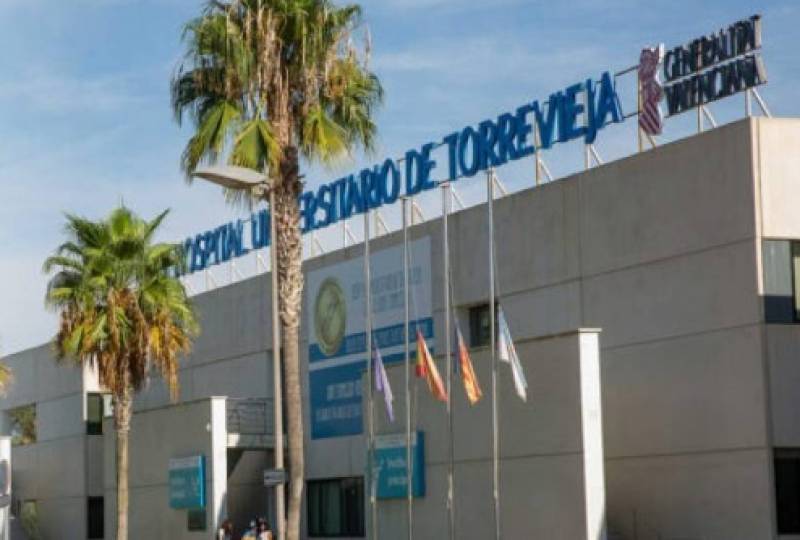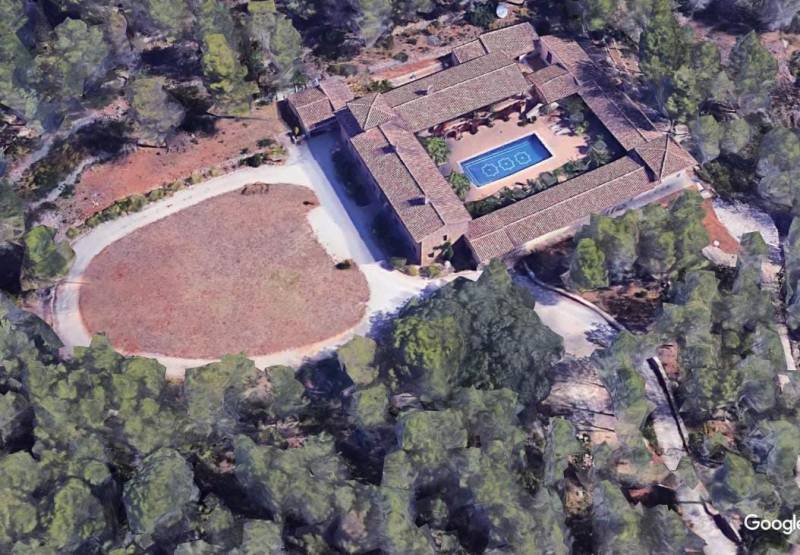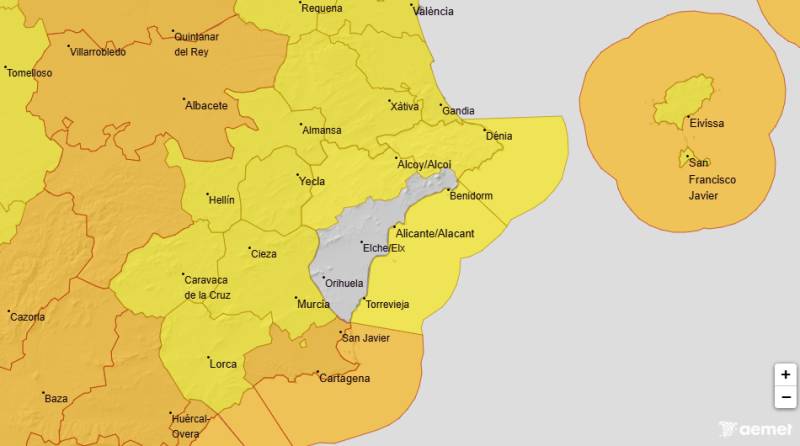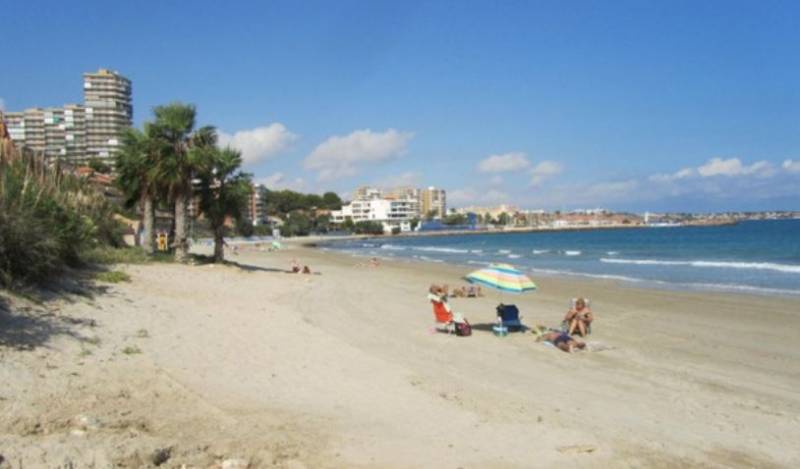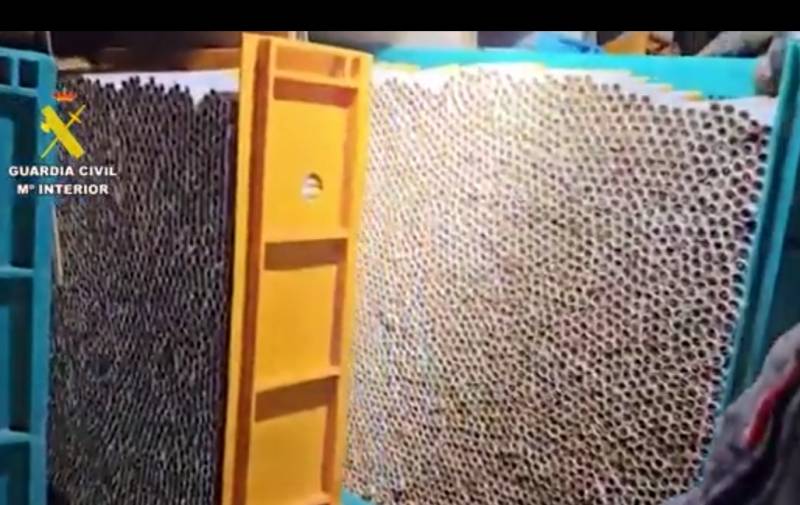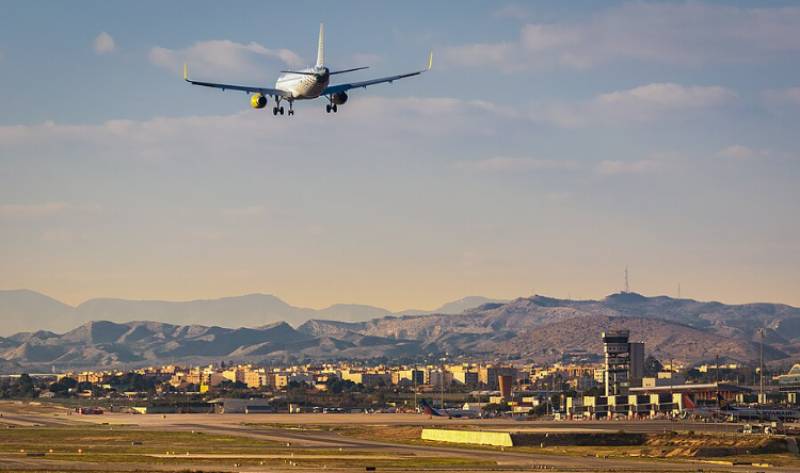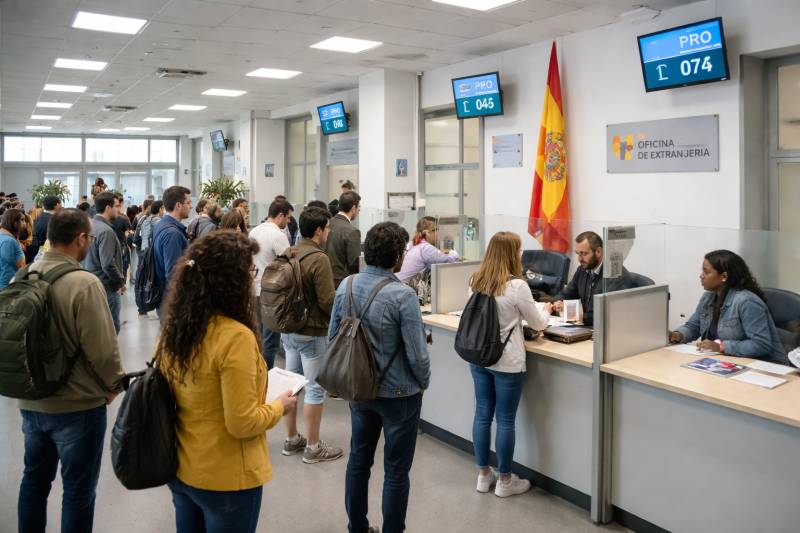

Guidelines for submitting articles to Mazarron Murcia
Hello, and thank you for choosing Mazarron Murcia to publicise your organisation’s info or event.
Mazarron Murcia is a website set up by Murcia Today specifically for residents of the urbanisation in Southwest Murcia, providing news and information on what’s happening in the local area, which is the largest English-speaking expat area in the Region of Murcia.
When submitting text to be included on Mazarron Murcia, please abide by the following guidelines so we can upload your article as swiftly as possible:
Send an email to editor@spaintodayonline.com or contact@murciatoday.com
Attach the information in a Word Document or Google Doc
Include all relevant points, including:
Who is the organisation running the event?
Where is it happening?
When?
How much does it cost?
Is it necessary to book beforehand, or can people just show up on the day?
…but try not to exceed 300 words
Also attach a photo to illustrate your article, no more than 100kb

Casa Carbonell in Alicante City
Located on the Explanada, it is by far the most elegant and emblematic building on the sea front
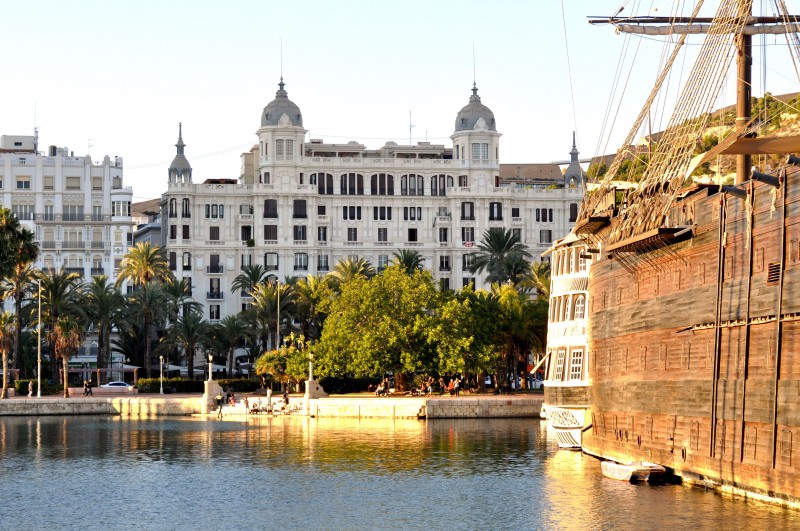
The Casa Carbonell is by far one of the most emblematic buildings in the whole of Alicante city, with its elegant, old -fashioned architecture standing out from the rest of the more modern, urban constructions in the city centre.
It is located at the end of the Explanada de España, Alicante’s famous maritime promenade, and sits between the Plaza del Ayuntamiento and Plaza Puerta del Mar. The main entrance faces directly onto the city port and its neighbouring building is the famous Hotel de Palas, now the headquarters of the Cámara de Alicante (Alicante's Chamber of Commerce).
The Casa Carbonell was named after the wealthy textile businessman from Alcoy named Enrique Carbonell, who regularly visited the city of Alicante. The legend has it that Enrique Carbonell’s daughter was seriously ill and he would therefore frequently take her to Alicante where the pleasant climate would lighten her spirits.
On one occasion, however, Enrique arrived in Alicante also suffering from an illness, which he had contracted during his journey. He turned up at the luxury Hotel de Palas, desperately seeking medical assistance and a place to rest, but was turned away for looking dirty and badly dressed.
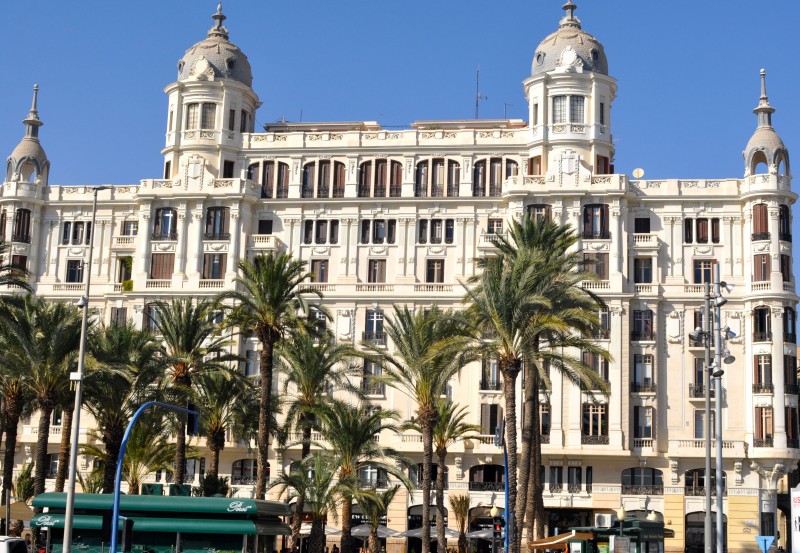
Little did the hotel staff know, Carbonell was actually an incredibly wealthy businessman having made lots of money during the First World War, and so out of revenge for the poor treatment he received, he decided to construct an enormous house, right next to the Hotel de Palas which would be far greater and more elegant and consequently completely outshining the neighbouring hotel’s greatness. He commissioned famous local architect, Juan Vidal Ramos to design the property which was built in 1925.
However, during the year of inauguration, the building was subjected to unfortunate damage when a hydroplane from Algiers accidentally collided into one of the domes, killing the two crew members and causing the dome and part of the building to collapse. Consequently that same year, some of the building had to be entirely reconstructed and the dome restored before it was then officially inaugurated six months later than expected.
The building was designed as a residential construction and was built in a historicist style with classic French elements. The exterior is mostly white with four floors laid out in precise rows of tall windows, and on the top floor there are four towers topped with blue domes which form part of the skyline of Alicante city, being clearly visible from even the highest point of the Castillo de Santa Barbara.
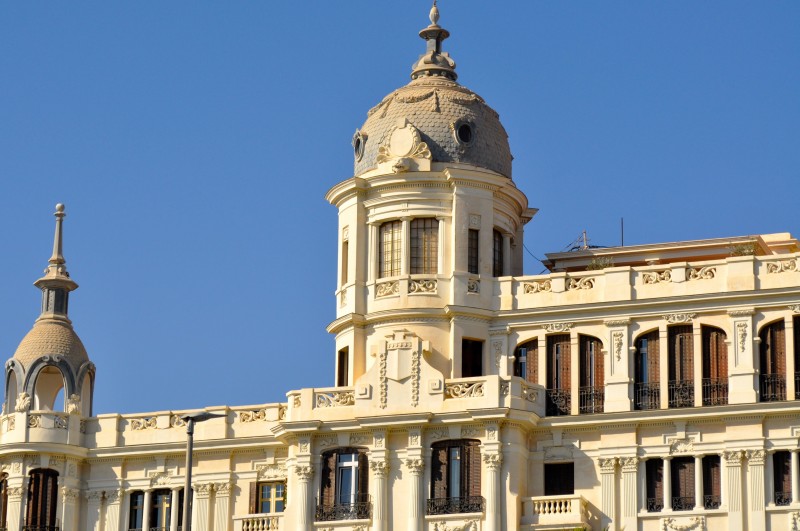
Today the top two floors are home to a number of top notch luxury rented apartments. The flats on the top floor are divided by balconied terraces offering the most spectacular views of the city port, with impressive staircases leading down to the lower levels and corridors leading through to different rooms. There are four large residential apartments on each of the two highest floors, each apartment consisting of a dining room, an office, a living room, three bedrooms, a staff bedroom, a kitchen, bathroom, reception and a lobby.
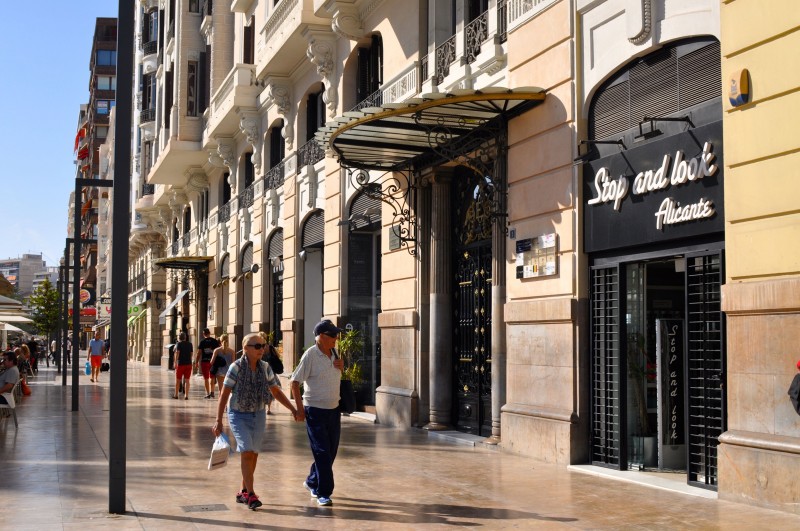
The second floor is divided into different offices, one of which is the Consulado de Bélgica (Belgian Embassy), and the bottom floor is home to tourist shops and some of the most popular restaurants for tourists, who love to sit outside and enjoy their meal on the terraces which back onto the Explanada de España.
Click for more information about Alicante City, including what to see, what’s on and useful local information












